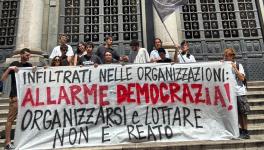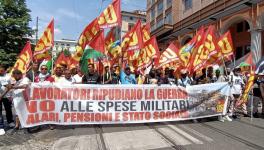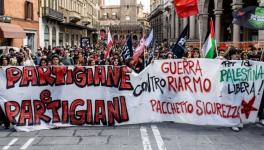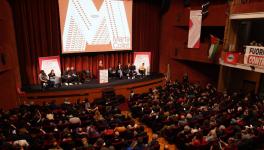Tens of Thousands Mobilise on Streets of Rome Against Far-Right Meloni’s Policies
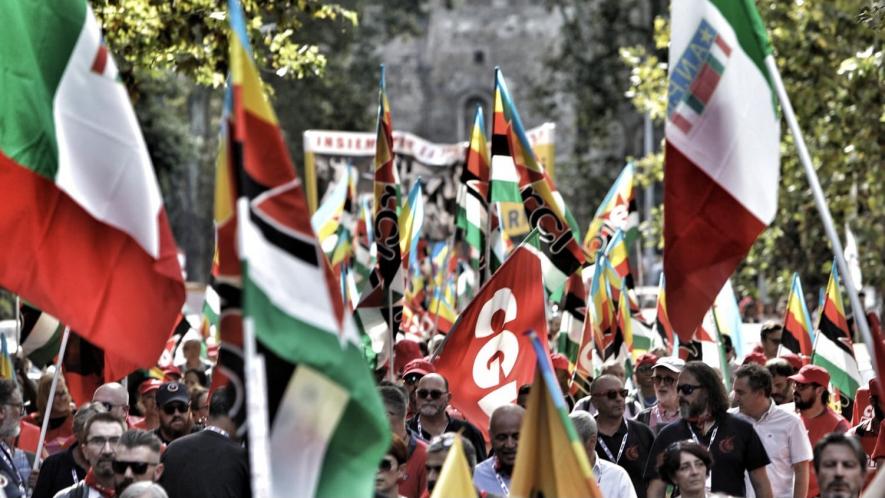
Thousands on the streets of Rome to protest Meloni's polices. Photo: CGIL
Tens of thousands of people filled Piazza San Giovanni in Rome on October 7 during a protest called for by the Italian General Confederation of Labor (CGIL). The protesters united in a call against austerity and policies that undermine constitutional rights, pushed by the far-right Prime Minister Giorgia Meloni’s government. In addition to the trade unions, the protest was supported by more than 100 other groups, including political parties, peace initiatives, youth networks, and more.
Already in the lead-up to Saturday’s event, CGIL leader Maurizio Landini said he expected a mass turnout – an expectation founded on the many regional initiatives converging in the days ahead of the central manifestation. The high participation is also a result of the broad set of demands that the confederation put forth publicly. Defending the constitution might have been the overarching theme of the mobilization, but in practice, everything from healthcare and education financing to job security and press freedom was covered.
Such a framework allowed most people to find their place in the march. This included peace activists, who were among those leading the way to the central square. The Italian Constitution explicitly repudiates war, as they reminded during one of their interventions, and commits to working towards a “world order that ensures peace and justice among nations.”
The approach taken by the Meloni government is far from that vision. Instead of promoting peacemaking and strengthening Italy’s own public services, the government today is more interested in spending money on arms, wars, and security measures to keep migrants out of Italy.
The commodification of health and education, along with a steady decline in workers’ rights, has meant that a significant part of the population struggles to afford food, not only essential services. Thus, the protesters’ demands included a guarantee of decent salaries in the first place, but also job security – something that most young workers in Italy have never experienced – as well as progressive taxation. Activists allege that achieving that will be next to impossible if Meloni and her ministers continue along the path they are pursuing now one of administrative devolution. They say that by increasing the autonomy of wealthier regions, it will reinforce existing inequities between the South and the North of Italy.
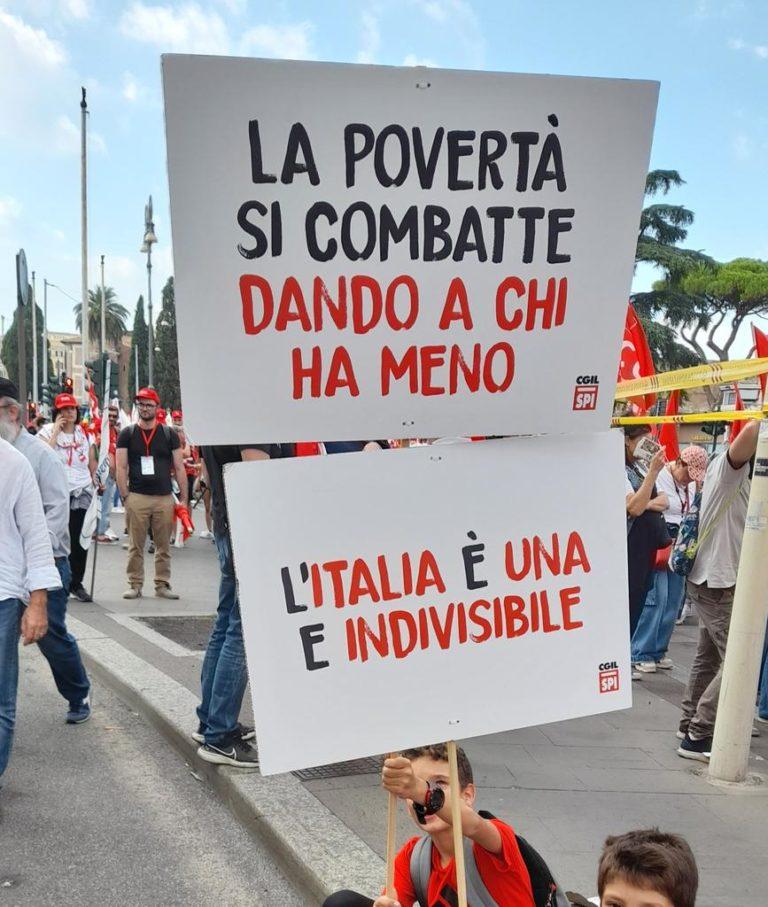
Young protesters holding a sign reading “Poverty is confronted by sharing with who has less: Italy is indivisible”
If implemented, the devolution motion spearheaded by Roberto Calderoli, the Minister of Regional Affairs coming from the far-right party Lega, would shatter the country and create rivalry among regions in areas where they should stand united. It would also make it difficult for some regions to provide a basic social support net for lack of funds. The political landscape would not be one of true democracy, warned many of the speakers at the protest, but a “low-intensity democracy” with extremely little room for people’s participation in political life.
Those present at the protest vowed that they were determined not to let that happen, and to continue fighting until there is a true change of course in the political arena. To see the change happen, the momentum will have to stay high – and probably escalate – in the days following the demonstration. How that can be achieved, the protesters suggested themselves, chanting “Strike, strike,” as the manifestation drew to a close.
The possibility of a general strike has been suggested by political organizations on the left as a more effective tool for the CGIL and other trade unions to force Meloni to back off from social services and basic human rights. The confederation is not avoiding the possibility of mass industrial action, with Landini saying that “he is not excluding anything” following Saturday’s event. But the final decision awaits the outcomes of consultations with other workers’ organizations.
Get the latest reports & analysis with people's perspective on Protests, movements & deep analytical videos, discussions of the current affairs in your Telegram app. Subscribe to NewsClick's Telegram channel & get Real-Time updates on stories, as they get published on our website.











